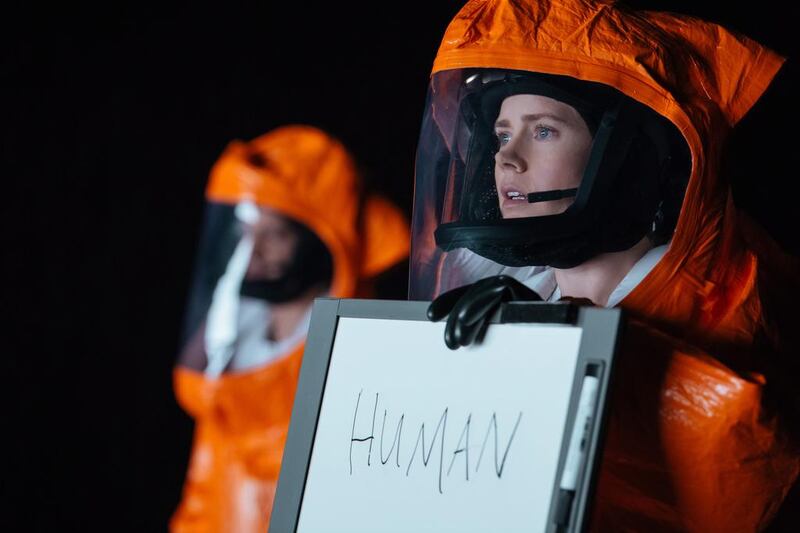Canadian director Denis Villeneuve's thoughtful sci-fi drama Arrival, which was released on Thursday, is being hailed by some as one of the best movies about alien contact.
But as with much of the best science fiction, the story is as much a look at the real world of today as a fictional adventure about a fantastical world of tomorrow.
With its themes of communication, lack of understanding of those who are different, and the danger of letting fear rather than friendship govern our actions, Arrival can be read as an allegorical take on global views of Islam, and how reactions to events can shape their course.
In the film, 12 pod-shaped spaceships arrive on Earth, hovering just above ground at a dozen locations around the globe.
Arrival is the story of how the world reacts to those who are unknown, complicated and different. The reaction is encapsulated by three characters: Dr Louise Banks (Amy Adams), a linguist, embodies the cultural, academic reaction, Colonel Weber (Forest Whitaker) the military, and quantum physicist Ian Donnelly (Jeremy Renner) the scientific. The primary problem all the characters face is understanding what the aliens want, given they do not speak the same language.
It is Banks’s job to figure this out by deciphering the visitors’ calligraphy and language. As these strange characters appear on screen, the parallels with how Arabic script must appear to those unfamiliar with it become evident. Strangers are immediately seen as the enemy.
An argument is made that by using the language of chess, war becomes inevitable, but the real threat lies in making knee-jerk responses based on fear, rather than the unknown.
Such a reading of Arrival is more easily made because Villeneuve has form in dealing with the Middle East. His excellent Incendies (2011) took a look at the region through the eyes of Canadian twins exploring their heritage after the death or their immigrant mother. Arrival seems like a companion piece, albeit one aimed at a multiplex audience.
Ultimately, Arrival suggests that a marriage between culture and science, rather than war, is the only way to escape the rhetoric of fear that governs modern politics.
The film urges us not to be taken in by the warlike rhetoric of politicians. If indeed it is an allegory, then it is asking us instead to look deeper at the peaceful message of hope and friendship inherent in true Islam, not the radical, fundamentalist version that fuels conflict.
artslife@thenational.ae






